Πώς να Ξεφύγεις από τις Παγίδες της Απεξάρτησης
Το Νάρκωνον χρησιμοποιεί δοκιμασμένη τεχνολογία απεξάρτησης, η οποία χτυπά το πρόβλημα στη ρίζα του και παρέχει μια διέξοδο για μακροπρόθεσμη επιτυχία.
Για σχεδόν 50 χρόνια, το Νάρκωνον έχει σώσει άτομα που θεωρούνταν χαμένα για πάντα μέσα στον εθισμό από τη χρήση ουσιών. Τη μια βδομάδα μετά την άλλη. Τη μια χρονιά μετά την άλλη. Η επιτυχία μας μετριέται με τον διαρκώς αυξανόμενο αριθμό αποφοίτων, οι οποίοι έχουν τώρα μια νέα ζωή, απαλλαγμένοι από τα φάρμακα/ναρκωτικά.
Πολλά άτομα που έρχονται στο Νάρκωνον είχαν δοκιμάσει άλλα προγράμματα απεξάρτησης στο παρελθόν, χωρίς κάποια σταθερή επιτυχία. Το πρόγραμμά μας είναι μοναδικό. Το Νάρκωνον χρησιμοποιεί μια σειρά τεχνικών, οι οποίες δεν βρίσκονται πουθενά αλλού, προκειμένου να βοηθήσει τους εθισμένους σε φάρμακα/ναρκωτικά να ξεπεράσουν την εξάρτηση από τα φάρμακα/ναρκωτικά και το αλκοόλ και τις επιβλαβείς επιπτώσεις τους. Αυτό επιτυγχάνεται με φυσικό τρόπο· δεν υπάρχουν φάρμακα ή υποκατάστατα ναρκωτικών στο πρόγραμμα του Νάρκωνον.
Στο Νάρκωνον, επιδιώκουμε να χειριστούμε τις αιτίες του εθισμού· να φτάσουμε στο στοιχείο εκείνο το οποίο οδήγησε ένα άτομο να πάρει φάρμακα/ναρκωτικά εξαρχής.
Ο στόχος είναι μια ζωή απαλλαγμένη από τα φάρμακα/ναρκωτικά.
Το Πρόγραμμα Νάρκωνον για την Απεξάρτηση από τα Φάρμακα/Ναρκωτικά
Διακοπή της Χρήσης Ναρκωτικών Χωρίς τη Χρήση Φαρμάκων ή Ναρκωτικών
Για κάθε μαθητή, προσωπικοί Ειδικοί στη Διακοπή της Χρήσης Εθιστικών Ουσιών είναι σε ετοιμότητα για να τον βοηθήσουν 24 ώρες την ημέρα.
διάβασε περισσότεραΒήμα Αποτοξίνωσης για μια Νέα Ζωή
Ένας συνδυασμός άσκησης, εφίδρωσης σε μια σάουνα ξηρής θερμότητας και μιας διατροφικής αγωγής.
διάβασε περισσότεραΤα Αντικειμενικά
Τα Αντικειμενικά είναι διαδικασίες που κατευθύνουν την προσοχή σου μακριά από τις αναμνήσεις του παρελθόντος και προς το άμεσο περιβάλλον σου στο παρόν.
διάβασε περισσότεραΔεξιότητες για τη Ζωή
Η αποτελεσματική πρακτική και η μάθηση οδηγεί στη σταθερότητα, στον αυτοσεβασμό και στην επιστροφή των προσωπικών αξιών.
διάβασε περισσότεραΑΠΟΤΕΛΕΣΜΑΤΑ ΠΑΓΚΟΣΜΙΟΥ ΚΥΡΟΥΣ
Για να το πούμε απλά, το Νάρκωνον δουλεύει. Διάβασε μερικά τυπικά σχόλια από μαθητές του προγράμματος Νάρκωνον και από μέλη των οικογενειών τους που βίωσαν την εμπειρία μιας, θα έλεγε κανείς, θαυματουργής μεταμόρφωσης.
διάβασε περισσότεραΑπό το 1966. Ανώτερα Αποτελέσματα. Μακροπρόθεσμη Αποτελεσματικότητα.
Το πρόγραμμα Νάρκωνον βασίζεται στις ανακαλύψεις και στα γραπτά του Λ. Ρον Χάμπαρντ, του Ιδρυτή της θρησκείας της Σαηεντολογίας. Εν τούτοις, το Νάρκωνον είναι μη θρησκευτική δραστηριότητα και το γεγονός ότι κάποιος κάνει το πρόγραμμα δεν τον καθιστά Σαηεντολόγο.
Ο Λ. Ρον Χάμπαρντ ήταν ανθρωπιστής και τα έργα του περιλαμβάνουν ανακαλύψεις στα πεδία της εκπαίδευσης, της πνευματικής υγείας, της αναμόρφωσης των εγκληματιών, καθώς και της απεξάρτησης από τα φάρμακα/ναρκωτικά. Άρχισε την έρευνά του σχετικά με τα φάρμακα/ναρκωτικά κατά τη διάρκεια των δεκαετιών του 1960 και του 1970, όταν η χρήση ναρκωτικών για ψυχαγωγικούς λόγους είχε λάβει διαστάσεις επιδημίας.
Οι ανακαλύψεις του σ’ αυτό το πεδίο οδήγησαν σε τεχνικές με τις οποίες θα μπορούσε να ξεπεράσει κανείς τις δυσμενείς επιπτώσεις από σχεδόν οποιοδήποτε είδος φαρμάκου/ναρκωτικού. Επιθυμώντας να βοηθήσει τα άτομα που θεωρούνταν χαμένα εξαιτίας του εθισμού, ο Λ. Ρον Χάμπαρντ κατέστησε ευρέως διαθέσιμες τις ανακαλύψεις του και το αποτέλεσμα ήταν η δημιουργία του Νάρκωνον.
Να Γιατί είναι Αποτελεσματικό
Τα διαρκή αποτελέσματα χτίζονται σε μια πετυχημένη βάση. Το κλειδί για την αξιοσημείωτη αποτελεσματικότητα του Νάρκωνον είναι αυτά τα αποδεδειγμένα στοιχεία του προγράμματος, τα οποία λειτουργούν συνδυαστικά:
Μακροπρόθεσμα Αποτελέσματα.
Tα στοιχεία του προγράμματος Νάρκωνον βασίζονται σε τεκμηριωμένη τεχνολογία – για σταθερά μακροπρόθεσμα αποτελέσματα.
• Διακοπή της Χρήσης Εθιστικών Ουσιών Χωρίς τη Χρήση Φαρμάκων ή Ναρκωτικών. Αυτό το βήμα περιλαμβάνει 24ωρη προσωπική φροντίδα και επίβλεψη.
• Αποτοξίνωση. Το μοναδικό Βήμα Αποτοξίνωσης για μια Νέα Ζωή, το οποίο γίνεται χωρίς τη χρήση φαρμάκων ή ναρκωτικών, αφαιρεί και τα τελευταία κατάλοιπα των φαρμάκων/ναρκωτικών από το σώμα και, ως εκ τούτου, εξαλείφει την έντονη επιθυμία
• Τα Αντικειμενικά. Οι ειδικά προσαρμοσμένες διαδικασίες του Νάρκωνον σε βοηθούν να παραμένεις σταθερά στο παρόν, αντί να είσαι βουτηγμένος στο παρελθόν.
• Εκπαίδευση σε Δεξιότητες για τη Ζωή. Αυτό το βήμα σε βοηθά να αναπτύξεις τα απαραίτητα εργαλεία για μια επιτυχημένη ζωή απαλλαγμένη από τα φάρμακα/ναρκωτικά.
Κάθε βήμα του προγράμματος μπορεί να προσφέρει σταθερά και αξιόπιστα αποτελέσματα που βοηθούν στην ανοικοδόμηση μιας στέρεης ανάκαμψης.
Ακρίβεια σε Κάθε Βήμα
Στο πρόγραμμα Νάρκωνον συμπεριλαμβάνεται μια σειρά από εκπαιδευτικά φιλμ που δείχνουν οπτικά τη θεωρία και τη διαδικασία κάθε πτυχής του προγράμματος.
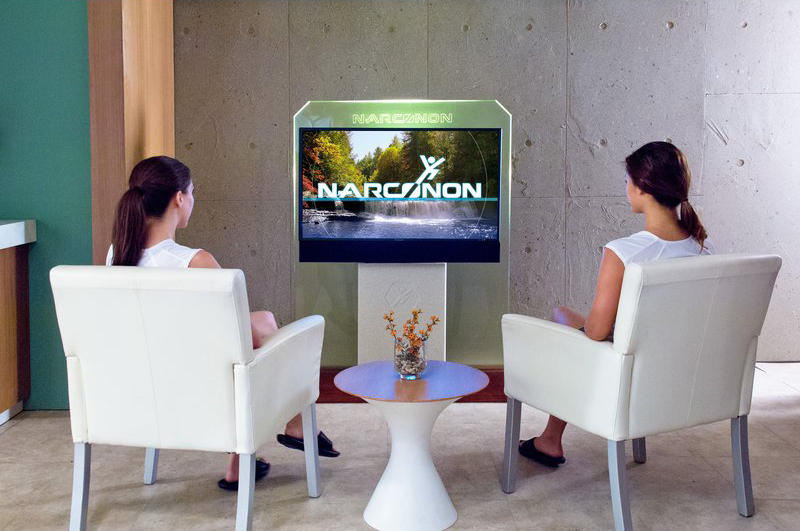

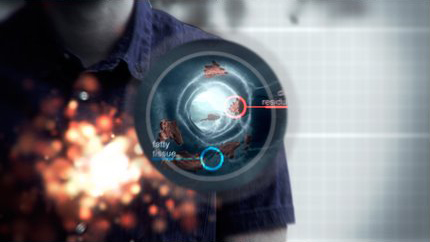
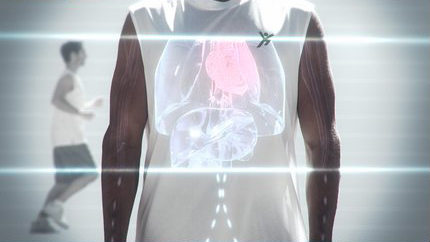
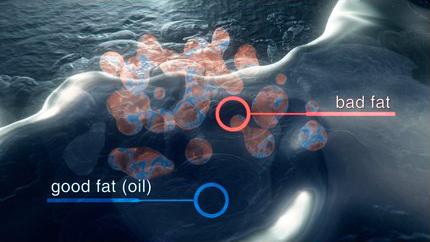
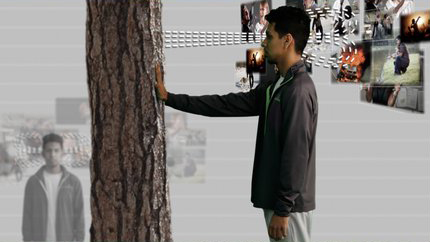
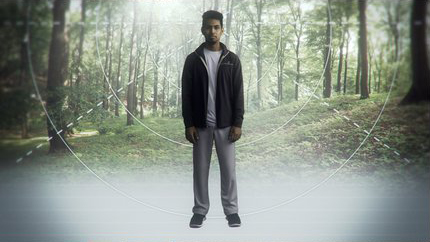
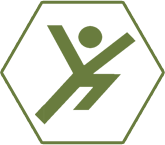
 ®
®